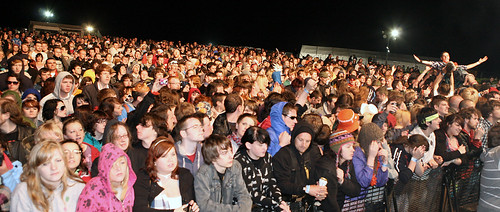By greybeard and Kelly Martin
According to Wikipedia,
Wikipedia is often cited as a successful example of crowdsourcing,[157] despite objections by co-founder Jimmy Wales to the term.[158]

.
For the largest audience, one has to be careful about the definition of the word “crowdsourcing“.
Wikipedia is a failed example of crowdsourcing, but there are also successful examples. The failure of Wikipedia as a crowdsourcing project is very interesting, but if one is to be — or are perceived as — decrying crowdsourcing more generally, one walks into a tarpit of contradictory evidence and conclusions that weaken one’s primary point.
Wikipedia’s model fails for a number of reasons. One we can call “entropy”. No fact on Wikipedia is ever fully-established. If we crowdsource (e.g.) a catalog of birds or a map of actual-vs-scheduled train times, then the facts are never (or seldom) in dispute. These projects rely on individual and precise datapoints submitted by individuals, either volitionally or automatically. The crowdsourcing of earthquake data on people’s phones is considered successful as well. While an individual can “game” that system, that data gets drowned out in the larger datastream and becomes “experimental error”. On Wikipedia no fact is ever final, no page ever complete, and the data is forever mutable, at the finest granularity. If someone enters that Ludwig van Beethoven was born in 1770, that fact is never locked down, and someone can change it at any time to 1707 or 1907 or 7707. As we know, people may patrol the page, but more sparsely watched pages can exist in erroneous states indefinitely. Entropy prevails.
…continue reading The Myth of Crowdsourcing at Wikipedia
